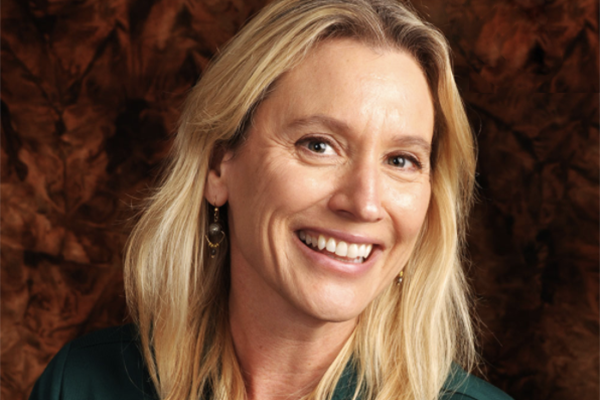
February 25, 2021
“Without the Awareness of What We Know, We are at the Mercy of What We Think”: A Q&A with eMindful Teacher Marta Patterson
It’s 4 p.m. on a Friday afternoon. At a time when most people are checked out and just waiting for the weekend to start, eMindful teacher Marta Patterson logs into our video chat full of positive energy. Even though I’m three hours ahead of her in the Eastern Time Zone, the natural light that she brings into our virtual meeting dissolves my late afternoon dreariness.
As I pull up the list of questions I have about her personal mindfulness journey, I can already tell that her story is going to be a beautiful one.
Q: How do you start your day?
“I usually get up at 6:30ish and mediate for 30 minutes if I have a lot of time. If I don’t, I will do 20 minutes, and I am pretty consistent with it,” she says. “Since COVID-19 started, I try to walk in the morning, and if not in the morning then I try to do it in the evening. Nature is one of my complete core values; for me, it’s one of my main purposes of living.”
Marta adds that she also regularly practices stretching and yoga.
“That’s how I take care of myself; keeping myself limber and grounded. It feels so good just to give your body some space. I think of it in terms of what really matters to me, and a sense of space or peace is really important to me, so I will cancel social stuff just to have a little peace.”
Q: How did you discover mindfulness?
“I discovered mindfulness because I was a mom,” she says, smiling, and explains that after being a registered nurse for many years, she took a hiatus.
“Our second child had a lot of medical and developmental problems and it was really hard…really hard. He started having severe life-threatening seizures when he was 4 and it was so hard with the hospitalizations. And I didn’t feel like I had any tools to help me let this stuff go,” she says.
After checking out a mindfulness class, Marta says she felt the difference after just one day.
“I thought, ‘wow there is something to this; this is quite incredible.’ I could focus my mind in a certain direction and notice things. It’s almost difficult to put it into words; it was completely life transformational for me.”
After discovering mindfulness, Marta says one of the first ‘aha’ moments for her was when she was pushing her son in his wheelchair to the neurology clinic.
“I thought to myself, ‘I don’t want to do this anymore. This is so hard. How long do I have to keep doing this? I was really feeling bad, and then I remembered mindfulness – ‘what am I doing right now? I am pushing my son into the doctor’s office.’ I could see the courtyard with all the nature and I thought, ’wow, it’s a beautiful day out there. Look at the sun. Look at the leaves. I am choosing to focus on all this worry and negativity and it was just like, wow, I can focus on all this beauty and joy, and my son was happy in that moment. Had I not had that moment of awareness, that moment of living life would have been taken from me,” she says.
Q: I hear you’re teaching eMindful’s new Cultivating Compassion program – can you tell me a little bit more about that?
“It’s a practice that is so valuable, and if people can learn even the basics of it, it really helps them to start to love themselves and to be less critical and accepting of who they are. Human beings fortunately have the capacity to learn self-compassion as a new way to relate to themselves. To be able to teach that is such a gift and I feel so incredibly grateful – the gratitude is really just spilling out of me, she says. The Dalai Lama said he found it really curious and strange, in a way, that Westerners don’t love themselves because that’s how we learn to love others. With self-compassion, we’re seeing ourselves as valuable because we’re alive.”
Q: What’s the most rewarding part about being a mindfulness teacher?
“Sharing with others what I know to be true. I have a quote up on my wall that says, ‘Without the awareness of what we know, we are at the mercy of what we think,’ and what we think is guided by our conditioning. If we can just look at ourselves and others with the bare truth, the clear seeing…when we are aware of our mental conditioning, we can know and accept it for what is. We can catch it with the butterfly net of mindfulness because we don’t have to go there,” she says.
Q: What’s your advice for people who are curious about or just starting mindfulness practice?
“I would say stick with it. Don’t give up. People often say they can’t meditate because their minds are too busy. But my answer is, you’re meditating perfectly because you are aware how busy your mind is. You’re doing it right, you just have to practice. And we can go into the world, and notice the world. Start slow – a little bit at a time. Start with just 1% of your day, or however much time you have.”
Written by Becky Greiner